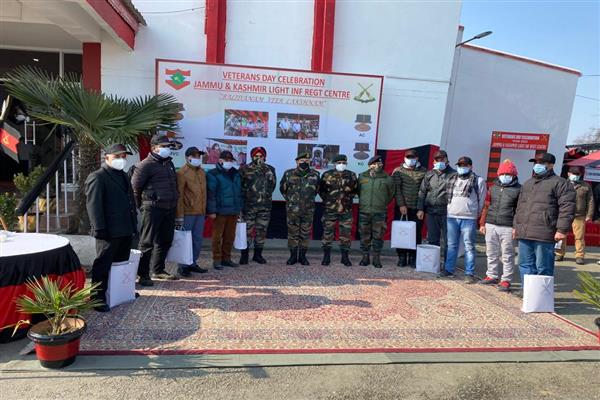Honoring Service: A Comprehensive Guide to Veterans Assistance

Veterans, individuals who have served in the military, deserve our utmost respect and gratitude for their sacrifices and contributions to our nation&8217;s safety and security. However, many veterans face unique challenges upon returning to civilian life, ranging from healthcare needs to employment and housing issues. In this comprehensive article, we explore the various forms of assistance available to veterans, highlighting the programs, benefits, and resources designed to support them in their transition back to civilian life and beyond.
: One of the most critical aspects of veterans assistance is healthcare. The Department of Veterans Affairs (VA) operates an extensive network of medical centers, clinics, and hospitals dedicated to providing comprehensive healthcare services to eligible veterans. These services encompass primary care, mental health care, specialized services for women veterans, and treatment for service-related injuries and disabilities. Additionally, veterans may qualify for VA healthcare benefits, including coverage for prescription medications, medical equipment, and long-term care services.
Education and Training Opportunities: Many veterans seek to further their education or acquire new skills upon transitioning to civilian life. The GI Bill, administered by the VA, offers educational assistance and vocational training benefits to eligible veterans and their dependents. Through programs such as the Post-9/11 GI Bill and the Montgomery GI Bill, veterans can receive financial support for tuition, fees, books, and housing expenses while pursuing a degree or vocational training program. These benefits empower veterans to pursue their educational and career goals and transition successfully into civilian employment.
Employment Support and Job Placement: Finding meaningful employment is often a significant challenge for veterans transitioning to civilian life. To address this issue, various organizations and government agencies offer employment assistance programs specifically tailored to veterans&8217; needs. The VA&8217;s Vocational Rehabilitation and Employment (VR&E) program provides career counseling, job training, resume assistance, and job placement services to veterans with service-connected disabilities. Additionally, initiatives such as the Veterans Employment Center and veteran-friendly employers&8217; initiatives connect veterans with job opportunities and help employers understand the value of hiring veterans.
Housing and Homelessness Prevention: Homelessness among veterans remains a pressing concern, with many struggling to secure stable housing upon returning to civilian life. To combat veteran homelessness, the VA operates several programs and initiatives aimed at providing housing assistance, supportive services, and resources to homeless and at-risk veterans. These programs include the HUD-VASH program, which combines rental assistance vouchers with case management and clinical services to help veterans secure and maintain housing. Furthermore, non-profit organizations and community-based initiatives offer transitional housing, emergency shelter, and wraparound services to address the underlying causes of veteran homelessness.
Disability Benefits and Compensation: Many veterans suffer from disabilities or injuries resulting from their military service, which may entitle them to disability benefits and compensation. The VA provides disability compensation to veterans with service-connected disabilities, offering financial support based on the severity of their disabilities and their impact on daily functioning. Additionally, veterans may qualify for other benefits such as VA pensions, dependency and indemnity compensation (DIC) for survivors of deceased veterans, and special compensation programs for severely disabled veterans. These benefits aim to alleviate financial hardship and improve the quality of life for veterans and their families.
Legal Assistance and Advocacy: Navigating the complexities of VA benefits, disability claims, and legal issues can be daunting for veterans. Fortunately, numerous organizations and legal aid clinics offer free or low-cost legal assistance and advocacy services to veterans in need. These services encompass legal representation for VA claims and appeals, assistance with discharge upgrades and military records corrections, and guidance on various civil legal matters such as housing, employment, and family law. By accessing legal assistance, veterans can protect their rights, access entitled benefits, and overcome legal barriers to their well-being and stability.
Community Support and Peer Networks: Building strong connections within the veteran community is invaluable for social support, camaraderie, and peer mentorship. Veterans service organizations (VSOs), such as the Veterans of Foreign Wars (VFW) and the American Legion, offer a range of services and activities for veterans, including advocacy, community service, and social events. Additionally, online platforms and social media groups provide virtual support networks where veterans can share experiences, seek advice, and offer encouragement to fellow veterans facing similar challenges. By fostering a sense of belonging and solidarity, these community support networks play a vital role in veterans&8217; well-being and resilience.
Conclusion: In conclusion, veterans assistance encompasses a wide array of programs, benefits, and resources designed to honor and support those who have served our country. From healthcare services and educational opportunities to employment assistance and housing support, these initiatives aim to empower veterans in their transition to civilian life and facilitate their continued success and well-being. As a society, it is our collective responsibility to ensure that veterans receive the recognition, respect, and assistance they deserve for their sacrifices and service to our nation. Through ongoing advocacy, collaboration, and support, we can honor the legacy of our veterans and uphold our commitment to their care and welfare.
